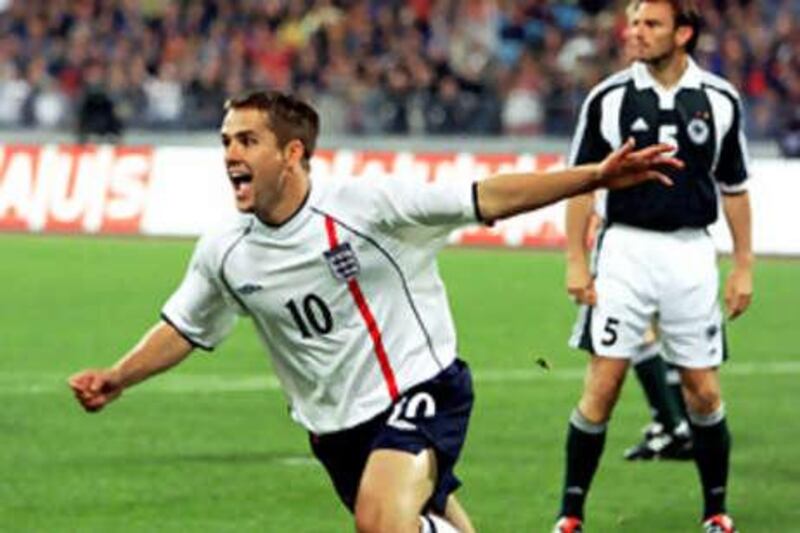It remains one of the most famous British tabloid front pages. Just before England played Germany in the semi-final of Euro 96, the Daily Mirror newspaper ran a photograph of two England players, with helmets from World War Two superimposed on their heads. The headline was: "ACHTUNG! SURRENDER! For you Fritz, ze Euro 96 Championship is over." The war references caused such revulsion that the Daily Mirror abandoned plans to drive a tank to the German embassy in London.
England's great football obsession was always Germany. So it was for France, Holland and perhaps half the countries in Europe: matches against Germany provided the best and worst moments in their histories. Yet when England visit Berlin tomorrow for a friendly clash, we will see that all that is over: though Germany remains a football rival, it is no longer anything more than that. The country that gave spice to international football - the chief villain of World Cups - has become just another team.
The main reason why everyone cared about beating Germany was best phrased by Lou de Jong, a professor who spent 50 years writing the official history of the Netherlands in World War Two in umpteen volumes. "When Holland scores I dance through the room," he said in 1988 after the best moment in Holland's football history, victory over West Germany in the semi-final of the European Championship. "Of course it's got to do with the War."
But the rivalry wasn't just to do with the War. Germany's post-War economic miracle had left most of its former enemies jealous. And, from 1954 until 1990, its football team were top dogs. All this added up to traumas for everyone else. The "30 years of hurt" lamented in English football's great hymn, "Football's Coming Home", mostly have to do with defeats against Germany. And France's worst football moment - until Zinedine Zidane saw red in 2006 - was France-Germany in Seville at the World Cup 1982.
Yet we all needed Germany, because the country gave meaning to international football. David Winner, author of books on English and Dutch football culture, says: "In terms of story the greatest nation in the history of football is Germany. A World Cup without Germany would be like Star Wars without Darth Vader." Similarly, Michel Platini, France's captain in that defeat in Seville, told me: "A great joy was having played in that semi-final, to have lived those emotions with mates, in a magnificent, difficult, catastrophic, beautiful moment. You live something for an hour and a half, and people still talk about it today. I lost, but where is the importance 15 days later?"
German dominance peaked in 1990: within three months from July to October, West Germany won the World Cup and achieved reunification. The team's coach, Franz Beckenbauer, said that with East German players about to join the team, Germany would be "invincible for years to come". On Oct 3 1990, the day of reunification, I wandered down the Unter den Linden avenue in Berlin to witness the birth of the invincible Germany. The avenue was packed, but apart from a few East Germans celebrating, most people were wandering around quietly too. Like me, they seemed to be just looking.
Walking down the most pompous boulevard of an empire on the night of its greatest glory, you seldom realise that this is the moment that the empire starts to collapse. After 1990, Germany gradually stopped being Darth Vader. Its economy and football team plummeted in tandem. The War, for decades present in European minds, finally began to recede into history. And so German football ceased to be a source of fear, although their success in winning Euro 96 and reaching the World Cup final in 2002 and this year's European Championship final is not to be sniffed at.
Last year, the British market research organisation Tickbox.net did a survey of English and German fans. When English fans were asked to pick their team's main rival, 36 per cent named Germany, more than mentioned any other country. However, the rivalry didn't seem to have much to do with the War anymore. Young people cared most about beating Germany, while the over-54s cared least. Germany are no longer Darth Vader. There may never again be a European football match as loaded as Seville '82 or Hamburg '88. However much we all now love the Germans, that is a loss.
sports@thenational.ae





